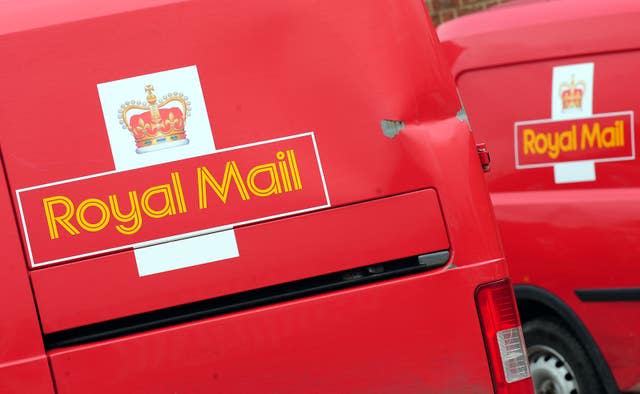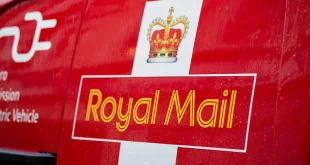The price of a second class stamp is set to be pegged to inflation until at least 2029, the UK communications regulator has said in efforts to keep letter-sending affordable.
But Ofcom said it wants to scrap the current price cap on parcel services.
Under new proposals, Ofcom said it would keep a cap on standard second class letters, and that average prices should rise by no more than inflation from what they are currently.
The move will make sure sending letters remains an affordable option for everyone, the regulator said.
The price of a second class stamp for a standard letter, which would typically take two to three working days to arrive, cost 75p from April.
It was increased by 7p, while the price of a first class stamp was hiked to £1.10 from 95p.
Royal Mail typically increases the price of stamps annually. The new rules would mean it has to base price rises against the Consumer Prices Index (CPI) inflation rate in September the previous year.
It comes as CPI inflation in the UK stayed at 8.7% in May for the second month running, despite hopes it would ease further and heaping extra financial pressure on households.
However, the inflation rate is expected to drop sharply at the end of this year and get closer to its 2% target, the Bank of England has said, which could limit future price hikes on the stamps.
Ofcom said the move would safeguard the universal service – which requires Royal Mail to deliver letters six days a week and parcels five days a week to every address in the UK, at an affordable and uniform price.
Marina Gibbs, Ofcom’s director of post, said: “We might not be sending as many letters as we used to; but when we do, it can be an important way for family and friends to keep in touch.
“So we’re proposing that stamp prices for second class letters should only rise by inflation, and no more, to make sure there’s always an affordable option available to everyone.”
Around a fifth of consumers reported sending fewer personal letters, greetings cards, invitations and postcards and formal letters compared with two years ago, Ofcom found in its research.
Yet some two thirds of people still post a letter each month, primarily sending birthday and Christmas cards to friends and family, it said.

Meanwhile, under the watchdog’s proposals, a cap on Royal Mail parcel services would be scrapped.
Ofcom said the delivery giant has faced significant competition in the market, with a host of rapidly expanding parcels companies, which has limited its ability to raise prices.
It would still have to set a single price for parcel services across the UK and make sure it stays affordable, Ofcom stressed.
It added: “If during this five-year period we have material concerns regarding affordability, we can step in to protect consumers.”
Furthermore, it would have the flexibility to set prices for certain second class letters, such as heavier post, so long as the weighted average overall price of letters does not rise above inflation.
Royal Mail is currently being investigated by Ofcom over its failure to meet delivery targets in the past year, having fallen short of its performance targets for first class and second class mail and delivery routes.
Ofcom said it is consulting on its new proposals until September, and plans to publish its final decisions later in the year.
Source link


